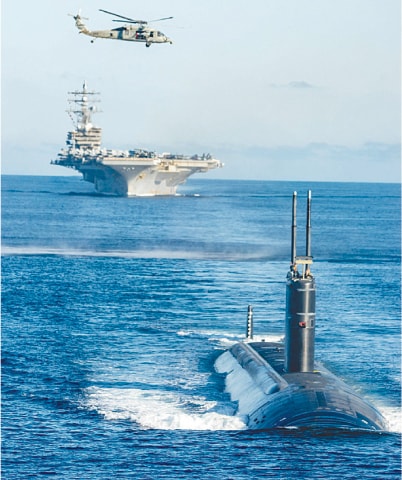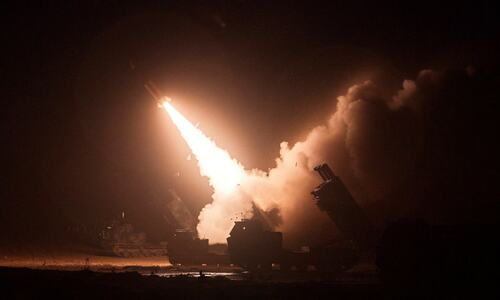SEOUL: The navies of South Korea, the United States and Japan staged trilateral anti-submarine exercises for the first time in five years on Thursday, amid tension over North Korea’s series of missile tests.
The drills were held in international waters off the Korean peninsula’s east coast, just a day after North Korea fired two ballistic missiles into the sea off its east coast and US Vice President Kamala Harris visited Seoul and the heavily fortified border between the two Koreas.
Thursday’s test was the third such launch in five days by the North, which has fired an unprecedented number of missiles this year.
“The exercises are designed to improve their capability to respond to increasing North Korean submarine threats, including its submarine-launched ballistic missiles (SLBM) at a time when it consistently poses nuclear and missile threats with a series of ballistic missile tests,” the South Korean navy said in a statement.
The US navy said the drills will enhance inter-operability and tactical and technical coordination between the three countries.
The US and Japanese navies also said the exercises are expected to promote “a free and open Indo-Pacific”, amid tension over China’s actions in the Taiwan Strait.
The anti-submarine drills have not been conducted since 2017 because the former progressive South Korean government sought to improve relations with the North and facilitate denuclearisation talks between Pyongyang and Washington, which have stalled since 2019.
South Korea’s new President Yoon Suk-yeol, who took office in May, has vowed to boost trilateral security cooperation with the United States and Japan to better counter the North’s evolving weapons threats.
Published in Dawn, October 1st, 2022














































